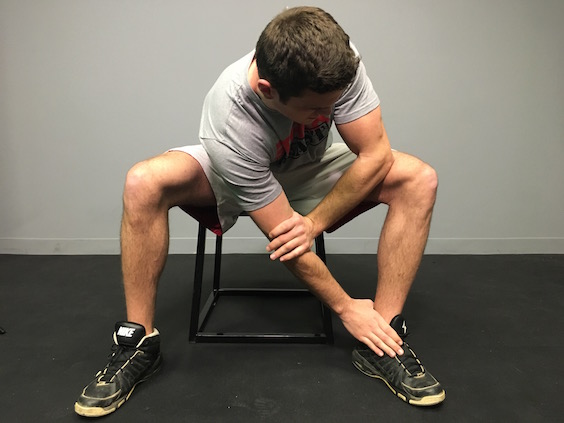Whenever we hear the word ‘energy,’ physical strength immediately springs to mind with the general belief that the human energy field is only physical. In the bestselling book, The Emotional Energy Factor, famous psychotherapist, and author Mira Kirshenbaum, debunks this myth. She embarks on research, and her subjects are experts in sports medicine, nutrition, and endocrinology. The question posed in the study was quite simple and straightforward: “How much energy does the typical person get from physical sources versus emotional sources?” The result of the survey was unanimous: human energy is only 30 percent physical energy. The remaining 70 percent? Purely emotional energy.
What is emotional energy?
Emotional energy is driven by the things that you feel (happiness, joy, zeal, hope, excitement, and satisfaction, to mention a few). Emotional energy is what revs up your enthusiasm for your career and your interest in a particular sport or hobby. It’s what makes you feel alive and imbues you with the confidence to achieve your goals. So, while physical energy undoubtedly has its place, the importance of emotional energy must not be underestimated.
You may find that while you possess the strength to train or carry out a particular task, you cannot whip up the desire to do anything. You could care less about the job or your usual training routine even though an effective presentation or competition is looming around the corner. And when you do eventually make an effort, you find no joy in what previously pleased you. You feel tired yet can’t even recall doing anything physically strenuous. That feeling of indifference and exhaustion that feels more mental or creative-based than physical is a surefire sign of substantial depletions in your emotional energy levels. A more common term for this phenomenon is burnout.
How does emotional energy affect your performance?
According to the World Health Organization (WHO), there is a direct relationship between burnout and decreased professional efficiency. Low emotional energy levels affect your productivity, be it in the gym or on the tracks.
Devdutt and Mehrotra, in their research article, Emotions at work and mental health: emerging directions, state that an individual’s turnover, ability to make proper and timely decisions, and performance highly depend on their emotions. Positive emotions energize the mind and amplify your emotional energy. Simultaneously, an added zest for life and increased motivation will result in greater overall well-being and performance across every area of your life.
On the flip side, once you have negative emotions, your emotional energy levels fall. The passion you’ve always seemed to have for your training and future goals seems to elude you, indifference and cynicism begin to creep in, and your performance begins to decline.
What causes you to lose emotional energy?
If you’ve ever found yourself asking: “Why do I feel so tired all the time?” Well, you’re not the only one. Emotional exhaustion has become a frequent occurrence in the world today. An online survey carried out in 2018 revealed that over 60% of more than 1000 respondents experienced burnout regularly.
Reduced emotional energy varies from person to person, but there are several general causes of emotional exhaustion.
- Worry: When you start worrying, especially about things you can’t control, you feel helpless and begin to lose emotional energy.
- Toxic relationships: It could be that person with a pessimistic and cynical perspective on virtually everything. Or even a friend or relative that subtly judges your words and actions, continuously finding you lacking. Maybe that co-worker or boss is blithely shuffling their work onto your desk. These people slowly but gradually drain all the positive emotions from you and leave in its stead large helpings of inadequacy with their toxic attitudes.
- Refusing to let go: People will hurt you, that’s a given. But holding on to anger, pain, and frustration leaves little space for positive emotions to grow.
- All work and no play: Whether you’re working out on the track or training at the gym, doing things you love over and over again without taking a break or a vacation can lead to emotional exhaustion.
- Poor nutrition habits: How you eat will ultimately determine how you feel. As athletes, we tend to be more nutrition-conscious than the average person, but there are so-call “healthy” food items that do more harm than food. Many famous sport nutrition brands have ingredients containing artificial sweeteners and preservatives that offer no nutritional value—becoming proficient in understanding nutrition labels and supplementing with whole foods when possible.
Tips to boost your emotional energy
Identifying what triggers negative emotions makes it easier for you to eliminate or minimize the occurrence. Implement these tips and watch your passionate energy rise to new levels.
- Be assertive and enforce your boundaries: Learn how to say NO to people who take you for granted. If you’re unable or naturally not comfortable doing something, then speak up. Don’t cower in silence. Define and maintain boundaries for yourself. Keep judgmental people at a distance and preserve your emotional energy.
- Take a break: In your busy schedule, find time to take a breather to enjoy life. Walk your dog, watch the sunset, and bask in the beauty of Mother Nature. Relax in the tub, hang out with your close friends, practice mindfulness meditation, take time off to go on a leisure trip.
- Focus only on what you can control: It’s good to have a plan and prepare for possible outcomes, but the truth is you can’t control the actions and decisions of others; you can only control yours. Focus on playing yo
RECOMMENDED FOR YOU
MOST POPULAR
Whenever we hear the word ‘energy,’ physical strength immediately springs to mind with the general belief that the human energy field is only physical. In the bestselling book, The Emotional Energy Factor, famous psychotherapist, and author Mira Kirshenbaum, debunks this myth. She embarks on research, and her subjects are experts in sports medicine, nutrition, and endocrinology. The question posed in the study was quite simple and straightforward: “How much energy does the typical person get from physical sources versus emotional sources?” The result of the survey was unanimous: human energy is only 30 percent physical energy. The remaining 70 percent? Purely emotional energy.
What is emotional energy?
Emotional energy is driven by the things that you feel (happiness, joy, zeal, hope, excitement, and satisfaction, to mention a few). Emotional energy is what revs up your enthusiasm for your career and your interest in a particular sport or hobby. It’s what makes you feel alive and imbues you with the confidence to achieve your goals. So, while physical energy undoubtedly has its place, the importance of emotional energy must not be underestimated.
You may find that while you possess the strength to train or carry out a particular task, you cannot whip up the desire to do anything. You could care less about the job or your usual training routine even though an effective presentation or competition is looming around the corner. And when you do eventually make an effort, you find no joy in what previously pleased you. You feel tired yet can’t even recall doing anything physically strenuous. That feeling of indifference and exhaustion that feels more mental or creative-based than physical is a surefire sign of substantial depletions in your emotional energy levels. A more common term for this phenomenon is burnout.
How does emotional energy affect your performance?
According to the World Health Organization (WHO), there is a direct relationship between burnout and decreased professional efficiency. Low emotional energy levels affect your productivity, be it in the gym or on the tracks.
Devdutt and Mehrotra, in their research article, Emotions at work and mental health: emerging directions, state that an individual’s turnover, ability to make proper and timely decisions, and performance highly depend on their emotions. Positive emotions energize the mind and amplify your emotional energy. Simultaneously, an added zest for life and increased motivation will result in greater overall well-being and performance across every area of your life.
On the flip side, once you have negative emotions, your emotional energy levels fall. The passion you’ve always seemed to have for your training and future goals seems to elude you, indifference and cynicism begin to creep in, and your performance begins to decline.
What causes you to lose emotional energy?
If you’ve ever found yourself asking: “Why do I feel so tired all the time?” Well, you’re not the only one. Emotional exhaustion has become a frequent occurrence in the world today. An online survey carried out in 2018 revealed that over 60% of more than 1000 respondents experienced burnout regularly.
Reduced emotional energy varies from person to person, but there are several general causes of emotional exhaustion.
- Worry: When you start worrying, especially about things you can’t control, you feel helpless and begin to lose emotional energy.
- Toxic relationships: It could be that person with a pessimistic and cynical perspective on virtually everything. Or even a friend or relative that subtly judges your words and actions, continuously finding you lacking. Maybe that co-worker or boss is blithely shuffling their work onto your desk. These people slowly but gradually drain all the positive emotions from you and leave in its stead large helpings of inadequacy with their toxic attitudes.
- Refusing to let go: People will hurt you, that’s a given. But holding on to anger, pain, and frustration leaves little space for positive emotions to grow.
- All work and no play: Whether you’re working out on the track or training at the gym, doing things you love over and over again without taking a break or a vacation can lead to emotional exhaustion.
- Poor nutrition habits: How you eat will ultimately determine how you feel. As athletes, we tend to be more nutrition-conscious than the average person, but there are so-call “healthy” food items that do more harm than food. Many famous sport nutrition brands have ingredients containing artificial sweeteners and preservatives that offer no nutritional value—becoming proficient in understanding nutrition labels and supplementing with whole foods when possible.
Tips to boost your emotional energy
Identifying what triggers negative emotions makes it easier for you to eliminate or minimize the occurrence. Implement these tips and watch your passionate energy rise to new levels.
- Be assertive and enforce your boundaries: Learn how to say NO to people who take you for granted. If you’re unable or naturally not comfortable doing something, then speak up. Don’t cower in silence. Define and maintain boundaries for yourself. Keep judgmental people at a distance and preserve your emotional energy.
- Take a break: In your busy schedule, find time to take a breather to enjoy life. Walk your dog, watch the sunset, and bask in the beauty of Mother Nature. Relax in the tub, hang out with your close friends, practice mindfulness meditation, take time off to go on a leisure trip.
- Focus only on what you can control: It’s good to have a plan and prepare for possible outcomes, but the truth is you can’t control the actions and decisions of others; you can only control yours. Focus on playing yo










